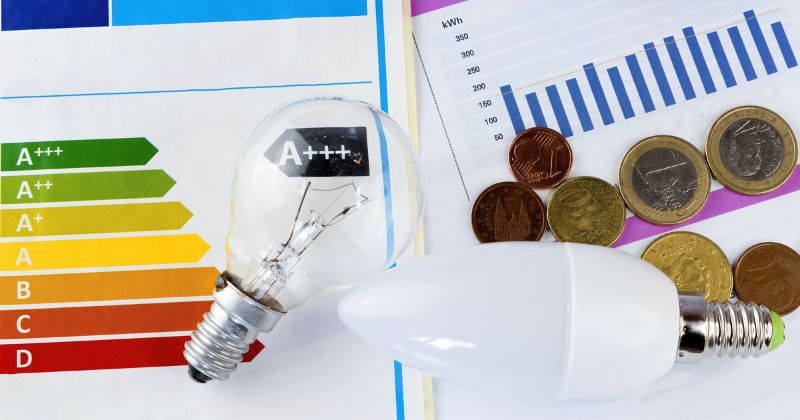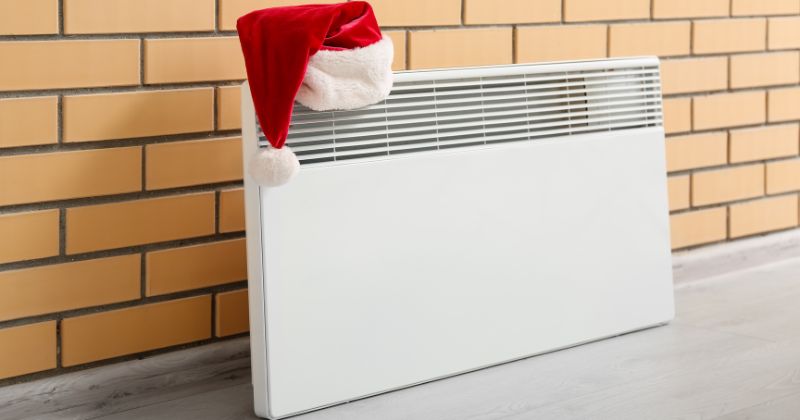Have you ever stood shivering in a draughty room, adjusting the thermostat and worrying about the bill? Now, picture a cosy evening in the same room, warmed efficiently without the stress of soaring costs.
But the burning question persists: Are electric radiators expensive to run?
Electric radiators are now a top choice for many. They are great for homeowners who want to control their heating and renters who need an easy heating solution. Yes, they are! Homeowners can control the heat in each room without wasting energy. Renters get to enjoy a warm space without having to install anything permanent.
For those who like doing things themselves, these radiators are perfect. They’re simple to install and use. The benefits are clear: homeowners save on energy, renters get easy heating, and everyone finds them easy to handle
Curious if electric radiators are expensive to run? Stick with us. We will look at the common questions to help you decide what’s best for your heating needs.
What Are Electric Radiators?
Electric radiators are great at heating rooms. They use radiant and convective heat, which means they warm up the air and the room evenly. This removes cold spots and ensures the room stays at your desired temperature.
One of the best things about electric radiators is how efficient they are. They have digital thermostats that let you control the temperature very precisely. You can set them to heat your home just when needed and turn down the heat when you don’t. This helps not to waste energy.
There are many types of electric radiators to choose from. Some have a sleek, modern look that fits right in with your home. Others are smart radiators that you can control with Wi-Fi. Putting them up is easy – hang them on the wall with the template they come with and plug them in. As we look into how much it costs to run electric radiators and if electric heaters use a lot of electricity in the UK, we see that their innovative technology and how you can control them are crucial to keeping costs down.
Analysing the Cost of Running Electric Radiators
Understanding the cost of electric radiators involves looking at the initial purchase price and the ongoing expenses. The overall cost is influenced by factors like the type of radiator, its power consumption, how often it’s used, local electricity prices, thermostat settings, room insulation, and the heater’s efficiency.
- Initial Purchase: This cost varies based on the radiator type and features. Different models, like convection, oil-filled, or infrared heaters, have different prices.
- Long-Term Expenses: These include the electricity costs for running the radiator. Factors like the heater’s wattage, usage duration, and efficiency significantly impact these expenses.
| Cost Factor | Initial Purchase | Long-Term Expenses |
| Type of Radiator | Price varies by model (convection, oil-filled, infrared, etc.) | Dependent on model’s energy consumption rate |
| Wattage | Higher upfront cost for more powerful models | Higher wattage increases electricity usage and costs |
| Usage Frequency | One-time purchase cost | Frequent use leads to higher electricity bills |
| Electricity Rates | Not applicable, as electricity rates do not affect the initial cost of the radiator itself. | Varies by region, directly impacting running costs |
| Thermostat Settings | Not applicable, since thermostat settings are a matter of usage preference. | Higher settings lead to increased energy use |
| Room Insulation | Not applicable, as the level of room insulation does not impact the purchase price of the radiator. | Well-insulated rooms can lower heating needs, reducing costs |
| Heater Efficiency | More efficient models may have a higher initial cost | High-efficiency heaters can reduce long-term electricity costs. |
The information provided is a general guide and may not cover all individual scenarios. Costs can vary based on location, usage, and radiator model. For precise cost estimates, consider a personalised assessment.
Understanding the Cost of Running Electric Radiators
You can perform a simple calculation to determine the cost of running electric radiators. For instance, consider an 800W electric radiator used for 7 hours a day, with electricity costing 16p per kWh. This would result in a daily cost of about 89.6p.
How Much Do Electric Heaters Cost to Run?
The running costs of electric heaters in the UK can vary. Let’s delve into an example: operating a 1.5 kW oil-filled radiator costs approximately 51p per hour, based on the UK’s average electricity rate of 34p per kWh. Running this heater for 8 hours a day would amount to around £4.08 daily.
It’s crucial to note that different types of heaters, such as convection and halogen heaters, may incur different costs due to varying energy usage. The more you use the heater, especially in larger rooms or colder weather, the higher the costs.
The key takeaway here is that the cost of running electric heaters can increase with prolonged use, larger room sizes, or colder conditions. This information is crucial for understanding the day-to-day expenses of using electric heaters in various scenarios.
Clearing Up Misconceptions about Electric Radiator Costs
Electric radiators have gained popularity for their energy efficiency and cost-effectiveness. Still, there are several myths and misconceptions surrounding them. Let’s set the record straight by debunking some of these common myths:
Myth 1 – Electric Heaters Are All the Same
Fact: Electric heaters come in various types, each with unique features. Understanding these differences helps you choose the right one for your needs.
For instance, convection heaters warm the air, providing even room heating. Radiators, on the other hand, emit heat without fans, offering consistent warmth. Fan heaters circulate air for quick heating but may not be as energy-efficient.
Myth 2 – Leaving Electric Radiators On All Day Is Cost-Effective
Fact: While you can leave them on all day, there might be better ways to save money. Electric radiators have programmable thermostats that let you decide when and how long they run. It’s usually cheaper to heat your rooms only when you need to. If you leave them on constantly, your energy bills may go up, especially if you’re heating rooms that no one’s using.
Myth 3 – Electric Radiators Are Difficult to Install
Fact: In reality, most electric radiators are easy to install and need only minimal setup. Many come with wall-mounting templates; you can hang them on the wall yourself.
Some advanced models even connect to Wi-Fi, allowing remote control through your smartphone. While you should follow the manufacturer’s instructions for proper installation, most homeowners can install electric radiators without complicated technical knowledge.
Myth 4 – Electric Radiators Are Not Environmentally Friendly
Fact: Electric radiators can be eco-friendly when used with renewable energy sources like wind or solar power. They are energy-efficient, which means they don’t waste energy.
This makes them a greener choice compared to traditional heating methods that use fossil fuels like gas or oil, harming the environment. By using electricity from clean, renewable sources, you can lower your impact on the environment and help fight climate change.
Myth 5 – Electric Radiators Are Noisy
Fact: Contrary to this belief, electric radiators operate quietly. They don’t have the noisy fans that some other heaters have. Instead, they use natural ways to spread heat, making them a great choice for keeping your home peaceful and comfortable.
Myth 6 – Electric Radiators Are Not Suitable for All Climates
Fact: Electric radiators work well in different climates, whether cold or hot outside. They’re designed to provide reliable heating throughout the year. You can adjust their temperature precisely, making them perfect for any weather. Whether you live in a chilly place or a hot one, electric radiators can help keep your home comfortable.
In summary, debunking these myths about electric radiators reveals their versatility, efficiency, and eco-friendliness. Understanding the facts can help you make informed decisions about your heating choices. So, are electric radiators expensive to run? Let’s explore more to separate fact from fiction.
Are Electric Radiators Expensive to Run in the UK?
Running electric heaters in the UK can cost a bit, but it depends on a few things. The average price for electricity is about 28.6p for each kWh (that’s a unit of electricity) starting from January 2024. So, using a heater like a 1.5 kW oil-filled radiator costs around 51p every hour. If you use this heater for 8 hours a day, it will cost you about £4.08.
But remember, electric heaters can use quite a lot of electricity. This is especially true when it’s cold, or you have a big room to heat. Also, in some parts of the UK, electricity can cost more than in other areas.
So, where you live can change how much it costs to run your heater. While electric heaters are handy for keeping warm, the costs can add up, especially if you’re in a place with higher electricity prices or use your heater a lot.
For more details on how much it costs to run different types of heaters, like the best small space heater or to find out the cheapest electric heating running costs, you can use an electric heater cost calculator.
14 Practical Tips for Reducing Electric Radiator Costs
Reducing the costs of running electric radiators is easier. You can enjoy efficient heating without overspending by understanding the factors that affect these costs and implementing some simple energy-saving tips and maintenance advice.
Here are 14 practical tips compiled from Best Electric Radiators to help you reduce your electric radiator costs:
- Program Radiators for Specific Times: Set your radiators to run only when needed to avoid unnecessary heating.
- Control via Mobile Device: Use smart controls to turn off heating when no one is home.
- Heat Only Used Rooms: Avoid heating unused rooms to save energy.
- Customise Room Temperatures: Set different temperatures for different rooms based on usage.
- Utilise Radiator’s Heat Retention: Turn off the radiator before bed; it will continue to emit heat.
- Improve Heat Distribution: Position radiators for optimal heat spread throughout the room.
- Avoid Fuel Costs: Electric radiators don’t require additional fuel, making them more cost-effective.
- Take Advantage of Lower Night Rates: Run radiators at night to benefit from lower electricity rates.
- Smart Features: Use radiators with sensors to turn off heating when no one is in the room.
- Regular Maintenance: Keep your radiators well-maintained for efficient operation.
- Insulate Your Home: Proper insulation keeps heat in, reducing the need for continuous heating.
- Use Thermostatic Controls: Adjust temperatures according to the need for efficient heating.
- Check for Drafts: Seal any drafts in windows or doors to prevent heat loss.
- Upgrade to Efficient Models: Consider upgrading to more energy-efficient radiator models.
Are Electric Radiators a Smart Choice for Your Home?
Yes, electric radiators are a smart choice for your home. They offer efficient heating tailored to individual needs, making them a practical and economical option. These radiators offer efficient heating solutions that align well with the diverse requirements of various households.
This flexibility, combined with their energy-saving features, makes electric radiators a practical and economical choice for homeowners looking to balance comfort with cost.
Balancing Cost and Comfort: Are Electric Radiators Expensive to Run?
Electric radiators have become a popular choice for keeping our homes warm and comfortable, all while making sure we don’t break the bank. They’re known for being energy-efficient and super easy to control, outshining old-fashioned heating methods.
When it comes to deciding if electric radiators are costly, it’s essential to consider their long-term advantages. Thanks to ongoing technological improvements, the running costs of electric radiators are becoming increasingly budget-friendly. This makes them a smart investment for both saving energy and maintaining a consistently cosy atmosphere in your home.
As the UK embraces renewable energy sources, we can expect the expenses tied to running electric heaters to go down, making them even more appealing. These advancements hint at a promising future for electric heating, offering homeowners more affordable and efficient heating options.
If you’re curious about whether “Electric Radiators Are Expensive to Run,” our team of experts at Best Electric Radiators is here to provide personalised guidance.
We’re here to help you grasp the costs associated with operating electric radiators and how they stack up against other heating solutions. Feel free to get in touch with us for a customised plan and maximise your home heating solutions. Don’t miss out!
FAQs
Is It Cheaper To Leave Electric Radiators on All the Time?
It’s cheaper to leave electric radiators on only some of the time. It’s more cost-effective to use them as needed and leverage features like programmable thermostats for efficient heating.
Are Electric Radiators a Good Idea?
Yes, electric radiators are a good idea for many homes. They offer efficient heating, are easy to install, and provide better control over room temperatures. Electric radiators running costs can be offset by their energy efficiency and convenience.
Can I Leave My Electric Heater on All Day?
Yes. You can leave an electric heater on all day, but there may be more energy-efficient approaches. Using electric heaters and utilising thermostatic controls is advisable to maintain a comfortable temperature without excessive energy use.
Are Electric Radiators More Energy Efficient?
Yes, electric radiators are generally more energy-efficient compared to traditional heating systems. They convert almost all the electricity they use into heat, have precise temperature control, and minimal heat loss, making them a cost-effective and energy-efficient option for home heating.
What Is the Difference Between Electric Heaters and Electric Radiators?
Electric heaters encompass many devices, including fan, convection, and infrared heaters. Each type has its unique way of heating a space, whether it’s through blowing hot air (fan heaters), circulating heated air (convection heaters), or emitting infrared rays (infrared heaters).
Electric radiators, in contrast, precisely heat a space by radiating warmth. They typically provide a more uniform and steady heat distribution. Radiators directly warm up the air and surfaces in a room through radiation, leading to a consistent temperature throughout the space.









Leave a Reply